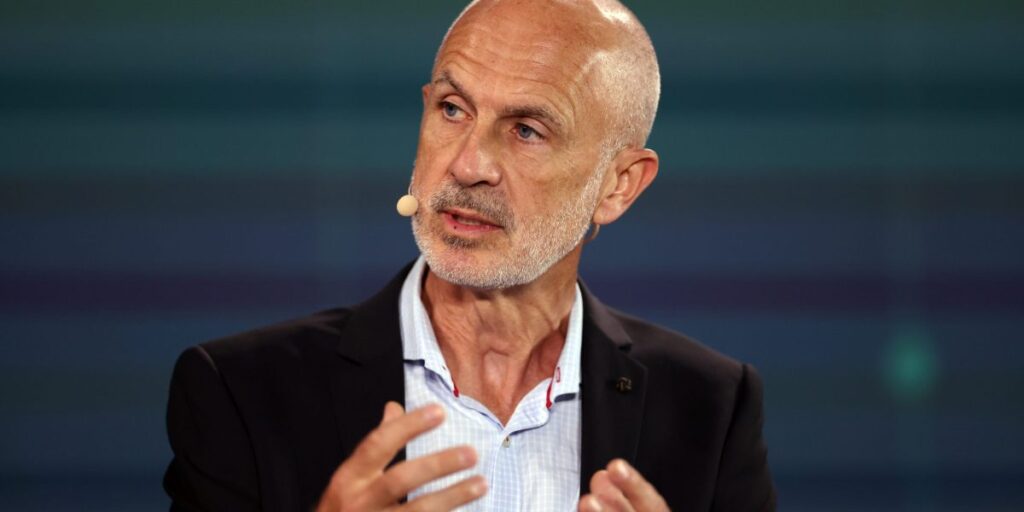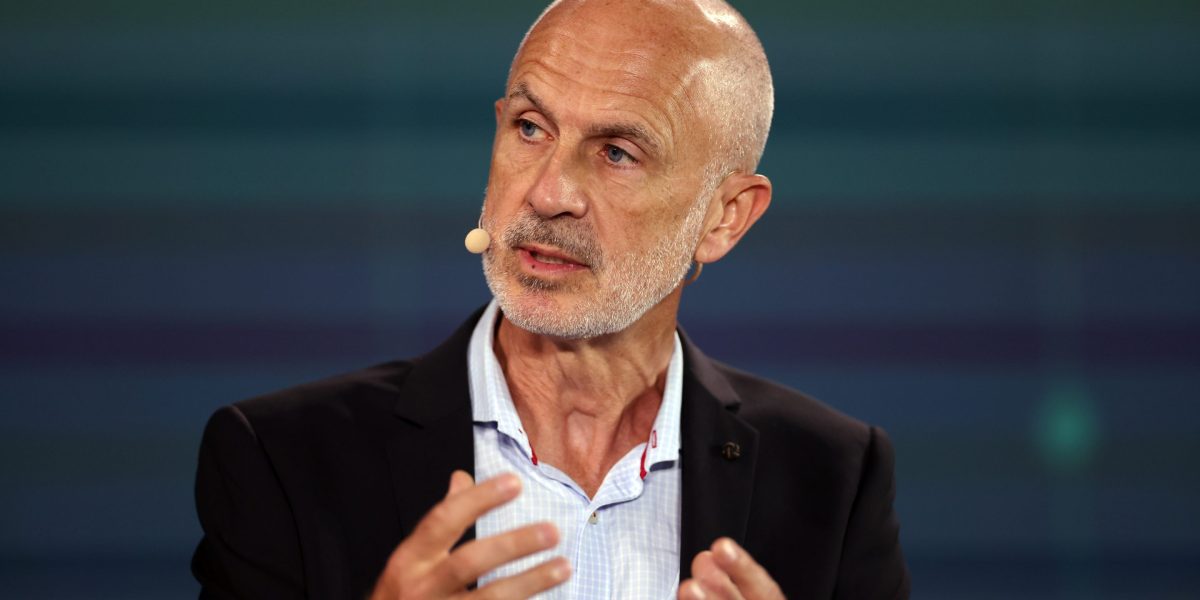Volvo Cars CEO admits 50% of its markets are taking ‘a lot longer’ to go electric and walks back 2030 EV goal
“We will be fully electric probably in 50% of the market way before 2030, but in the other 50%, it’s going to take a lot longer,” CEO Jim Rowan told Fortune.


Volvo Cars has joined a wave of carmakers walking back previously ambitious fully electric targets as fears grow that a recent slowdown in consumer sentiment is unlikely to be a blip.
The Swedish carmaker announced Wednesday it was reining in plans to go fully electric by 2030, instead opting to roll out more hybrid models for a longer period than previously planned.
The news helped knock Volvo Cars shares nearly 6% on Wednesday, leaving it teetering above a record low price. Today, the carmaking business is worth €7.7 billion, a fraction of its €26 billion peak in 2021.
Shares rebounded Thursday morning as Volvo announced plans to outgrow the premium car market, an industry pain point, through to 2026. However, the group also lowered its margin outlook for the year.
During Volvo Cars’ 90/90 event, where it showcased its new hybrid XC90 and its electric EX90, CEO Jim Rowan clarified that Volvo was operationally ready to go fully electric, but flagging consumer demand, among other issues, made this target unlikely.
“The future still remains the same, the destination point is the same. The arrival point, I think, becomes maybe slightly delayed,” Rowan told Fortune in Gothenburg, Sweden on Wednesday evening.
“We will be fully electric probably in 50% of the market way before 2030, but in the other 50%, it’s going to take a lot longer.”
Volvo clarified on Thursday that by 2030 it expected 90% of its sales to comprise EVs, with the remainder hybrid offerings.
A reduction in incentives, Rowan says, has made it harder to win over EV skeptics.
“People have been driving internal combustion engines for a long time,” Rowan said.
“When there was a massive incentive to move to BEV (battery electric vehicles), some people ended up taking them, but when there was no incentive any longer, [they thought]: ‘I’ll just stick with what I know.’”
Rowan added that tariffs on car parts, including Chinese-made batteries, the removal of subsidies from European governments, and a lack of adequate charging infrastructure were hurting the value proposition for consumers. He also pointed to last year’s EV price war affecting the residual value of cars in the second-hand market as a deterrent.
Volvo arrived late to the party with its announcement, lagging carmakers including Ford and Volkswagen, which indicated earlier this year they would soften their full electric targets.
Rowan said the timing of Volvo’s announcement, made the day before its capital markets day, was a result of several indicators the carmaker identified internally, indicating the current market slowdown wasn’t a “blip.”
“We’re a public company, so when we when we feel we’re making big decisions that can change the strategy, then we feel mobilized to tell the markets as soon as we’ve kind of made that decision,” Rowan said.
Volvo has been plagued by issues faced by other carmakers including a demand slowdown, its links to China, and the fallout of a bullish bet on electric. The company’s stock has fallen 19% through 2024 and is hovering above a record low, which it last hit when majority shareholder Geely shed some of its stake in the carmaker.
The group’s stock has enjoyed moments of respite, particularly a 20% surge after it announced it was axing a sizeable share of its investment in flagging EV brand Polestar and passing it on to Geely and other shareholders.
Volvo Cars’ Chinese-made electric EX30, faces a 19.9% import tariff to the EU following an anti-competition probe from the European Commission, meanwhile Chinese battery import tariffs have risen from 7% to 25% in the U.S.
In our new special issue, a Wall Street legend gets a radical makeover, a tale of crypto iniquity, misbehaving poultry royalty, and more.
Read the stories.





